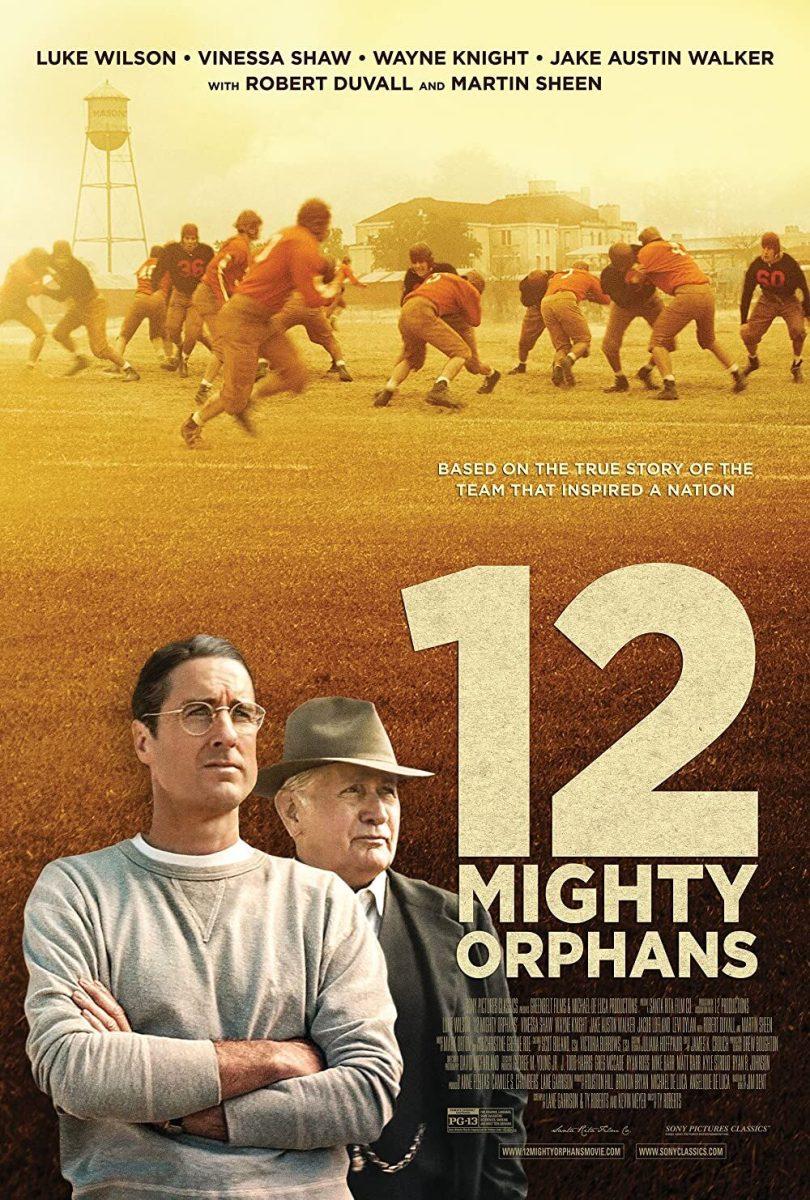Texas football is more than just a sport, and “12 Mighty Orphans” captures what football means to those with nothing else.
Directed by Ty Roberts, “12 Mighty Orphans” is inspired by true events of Texas football in Fort Worth during the 1930s. The film follows Rusty Russell, played by Luke Wilson, as he assembles a football team of 12 orphans called the Mighty Mites.
Set during the Great Depression, the film shows several parallels to war and the brokenness that lies both within America and these orphaned boys. The desperation the film conveys could have been better emphasized to allow the audience to feel as if the audience was present during these times. Jake Austin Walker gives one of the film’s best performances as Hardy Brown, showing the anger, frustration and sadness the orphans feel because of their abandonment. In a specific scene toward the end of the film, Walker’s acting performance is so captivating he almost makes the audience shed a tear.
However, the continuous narration is too much, and the entire film would be better if all of the narration from Martin Sheen were taken out. The voice-overs constantly tell the audience how to feel, rather than showing the situations that arise during football games and other scenes. This excess narration takes away from the intense emotions of desperation and heartache.
Inspirational films often have a handful of cheesy lines in the dialogue, and this film suffers from that issue. The narration specifically involves a couple of these short and simple lines that could have been spiced up by.
Some of the more touching parts of the film show the struggles of the time period. The heartbreaking scenes like those of the orphans struggling to read and coach Russell struggling from PTSD make up for the issue of overwhelming narration. The dialogue, set design and wardrobe are full of relevant topics from the 1930s, and well encapsulate the period.
For a film dedicated to football, there are plenty of shots about the sport, but different camera angles could have taken the film to another level. There is not a full grasp of emotion in the film until the quarterback, Wheatie, played by Slade Monroe, is abandoned by his mother yet again, and the audience is pulled into the feelings of the orphans. Monroe’s performance in this scene is tied with Walker’s as both convey to the audience what it feels like to be abandoned.
The state championship game against the Amarillo High Sandies is specifically interesting to watch. After watching the teenagers overcome their label as orphans, even Amarillo High graduates, like myself, begin to root for the Mites while the clock runs out. The entire film is captivating and heartwarming because it relates to what we all know; the 12th Man, great Texas football and a community we call family.
“12 Mighty Orphans” is more of an inspirational message that stands for hope during the hard times the country faced during the Great Depression. Overall, the film was great and hit close to home for many that grew up in Texas but needed some adjustments here and there to avoid common cinematic cliches.
‘12 Mighty Orphans’ is emotional, but not emotional enough
September 30, 2021
0
Donate to The Battalion
$2065
$5000
Contributed
Our Goal
Your donation will support the student journalists of Texas A&M University - College Station. Your contribution will allow us to purchase equipment and cover our annual website hosting costs, in addition to paying freelance staffers for their work, travel costs for coverage and more!










